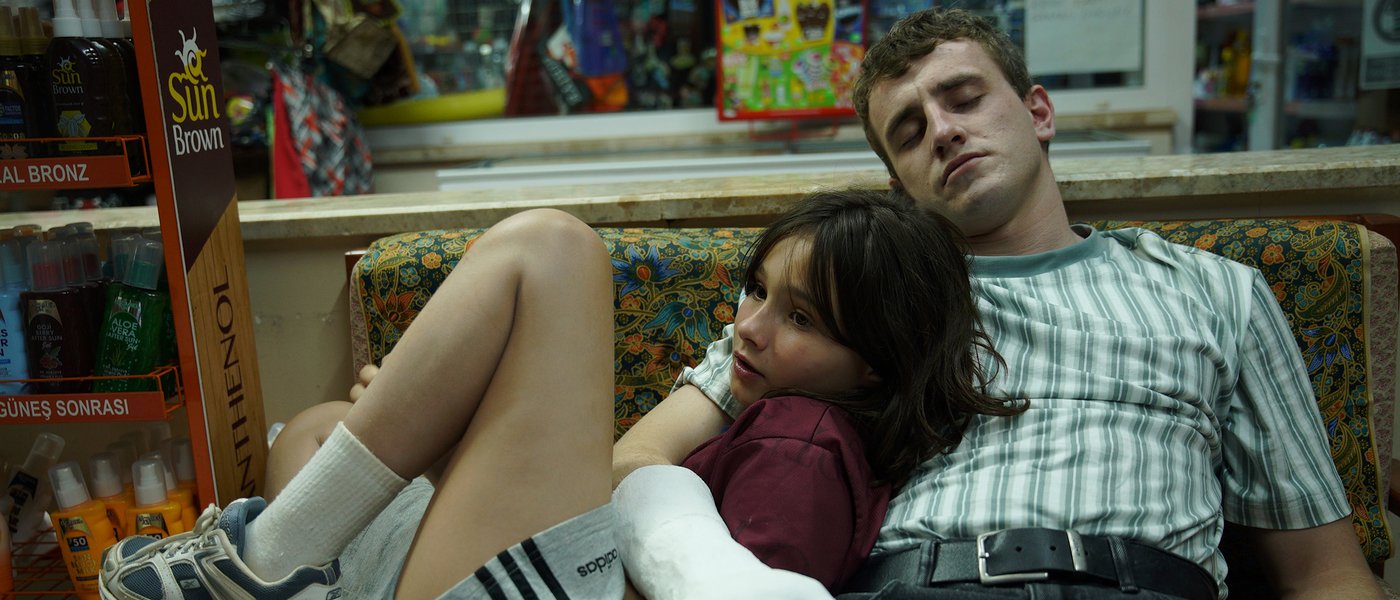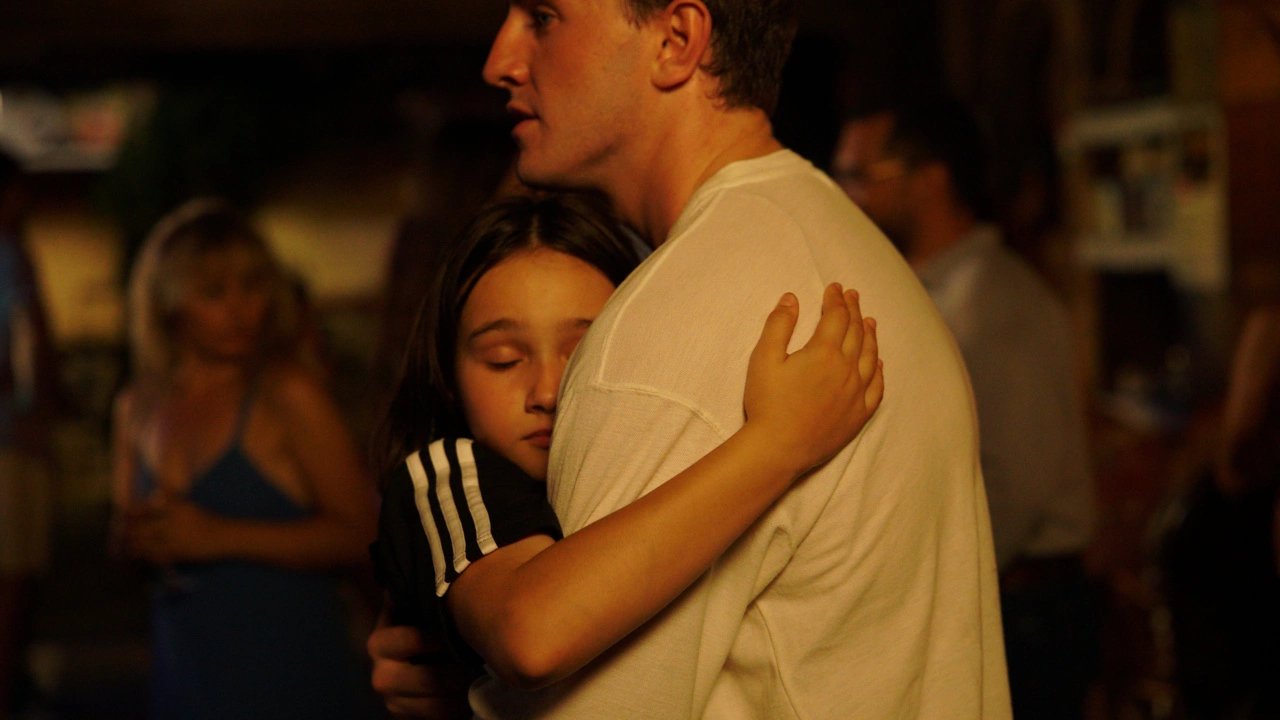'Aftersun' Review: A Tender Glimpse at a Father-Daughter Bond on Vacation [TIFF 2022]
a delicate debut of the highest quality focused on the complex relationship between a father and daughter.
Every year, the Toronto International Film Festival works to put a spotlight on directors that are making their debut or have only released a handful of films, still on the rise. This year was no different, with various films premiering with inexperienced directors. Aftersun, Charlotte Wells’ feature film debut, falls under this category, but had still accumulated some buzz before it reached screens in Toronto.
The film debuted during the Cannes Film Festival, where it garnered critical praise, and is being distributed by A24 in the US and Canada, a production and distribution company that comes with its own fanbase. Paul Mescal being slated to star also added a significant amount of hype – a rising actor that gained popularity from the miniseries Normal People. After TIFF screenings, there’s no doubt this buzz will just get louder until it finally releases in theatres.
Aftersun is a stunning portrayal of a complex father-daughter relationship, told so delicately from the perspective of an adult woman’s memory of her 11-year-old self. The use of video camera-like sequences, with rewinding and grainy, pixelated footage places the viewer right into the time period, right beside Sophie and her father.
The vast majority of the film takes place in Turkey, where pre-teen Sophie and her young father, Calum, are spending a vacation together. Sophie is played by newcomer Francesca Corio, who delivers an incredibly nuanced and emotional performance that feels so lifelike, and so relatable for anyone who has ever been an 11-year-old girl. Paul Mescal stars as Calum, and he keeps right up with Corio, with some of his scenes so charged with feeling it leaves a viewer holding back tears.
The screenplay is amazingly well-crafted – perhaps assisted by its classification as what Wells calls “emotionally autobiographical”. To be able to paint such a realistic picture of a relationship such as this, where it is a well-balanced and centred story, yet remains rich and complex that it leaves a lasting impact for the rest of a child’s life has to be a personal story for the filmmaker, or the richness and complexity would be lost. For viewers that enjoy films focusing on parent-child relationships, and the effects of them, Aftersun will be thoroughly appreciated. When a parent is emotionally unavailable, or emotionally suffocating, a child can feel a million different ways, and grow into so many different types of people, thousands of films could cover this and not be enough. For Aftersun to choose this specific direction for the characters is perhaps what leads to its greatest strength - it is so utterly grounded and real. Aftersun is a great addition to the heartfelt coming-of-age genre, with a unique way of storytelling and a special narrator, and it cannot be praised enough.
Parts of this film are reminiscent of Céline Sciamma’s Petite Maman, with a soft voice guiding the journey of both films, and a parent-child relationship where maybe the most important things are left unsaid. This is a compliment of the highest degree, and although there are commonalities, Wells has her own form, and this is definitively her film.
Wells’ style of filmmaking is subtle and gentle, and focuses on the characters. Interestingly, many may expect this would include a well-described backstory, but for these characters, the viewer merely joins Sophie and Calum for this small time in their lives. Somehow, that’s all that’s needed – the ability for the viewer to fill any blanks based on what they interpret adds to the film. It doesn’t matter what’s happened in the past, or what’s led up to this vacation, or what will happen afterward – all that matters is these several days in Turkey. Besides a few small scenes with Sophie in the future, just in a few breaks in her recollection, this is how the entire film unfolds. The viewer gets to see present day Sophie, and her circumstances add another layer to this film and its influence.
There are moments throughout the film that are so poignant and full of thought, and while the viewer cannot know exactly why the character feels the way they do, or what exactly is motivating their emotion, but they feel right along with them. Whether it’s Calum quietly smoking a cigarette during a moment alone on the balcony, or whether he’s hunched over and choking back sobs, the viewer feels – they can’t stop.
Ultimately, this film was one of the best of the festival this year, with real performances and raw, honest filmmaking. Wells is able to find her own style easily, even with this being her debut. New talent within the film is plentiful, and not only with writer-director Wells. The entire team, including Mescal and Corio, bring so much to the story, and their future projects should be on any filmgoers’ radar.



